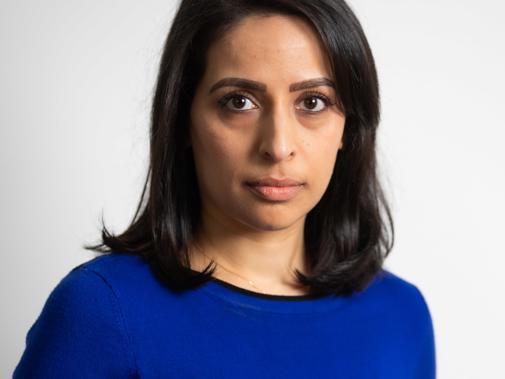‘Latifa needs to know when it’s not her place to comment.’
I was taken aback when I read those words on my multi-source feedback form at a former, non-clinical, healthcare employer.
To me, this read like I was being asked to be seen and not heard. It felt like constructive criticism wasn’t welcome if it came from someone like me. People like me should just observe and nod, it seemed.
I was a senior registrar at the time. People used to call me a critical friend and sometimes I was regarded as outspoken. But I felt all of this was to the organisation’s benefit. I was confident I was using my voice to ensure more viewpoints were heard – that I was trying to help colleagues, structures and systems improve.
But they didn’t want to hear it. I think that said a lot about the culture of the organisation – what sort of institution operates with leaders who think it is appropriate to say, ‘don’t be critical, because we don’t want to hear it’?
I reflected on the experience later, on a podcast called Dare to Disagree with a friend who is, tragically, no longer with us. We talked about criticism and constructive criticism, and it is through conversations and reflections like this that I have come to my strong view I should actively seek the thoughts of people who don’t always – in fact often don’t – agree with me.
Fundamentally, I think that is a helpful and positive approach. If we all think the same, or if we surround ourselves with ‘yes people’, I think it is hard to progress as people and organisations.
Sometimes I think we all need reminding of this – of how important challenge, conversation and criticism are.
I thought about this experience on a few occasions recently when I had messages from members – which I always encourage and appreciate – who feel that some of our BMA policy doesn’t apply to them, that it perhaps doesn’t reflect their views or experiences.
Among the areas members have raised recently are current policy on physician associates, and our policy and campaign for full pay restoration. Your BMA policy is made democratically by members who attend our conferences – whether those are branch-of-practice conferences or the BMA annual representative meeting, which I chair.
But we should always keep the spirit of conversation, challenge, and criticism – and the positive effects those things can bring – close to our hearts. It’s not enough to just tell people how things work currently. I strive to be a representative body chair who encourages and embraces diversity and a plurality of views. I tell those people – and I am telling you – that we need your voices to improve what we do.
We need you to be in the room when policy is debated and voted on. We need people to speak against policy that passes because it helps to hone better quality, more thoughtful policy. And we need to give a platform to speakers against policy that passes, too, because we are all better off with richer debate.
I understand that people disagree. I’m acutely aware our membership is some 190,000 members and there is no way the policy we ultimately produce is going to make every single member feel advocated for and represented.
The only way to do this better is to have more people speak up – people from diverse backgrounds with diverse views and diverse experiences. Democracy is good – but we can always do democracy better.
If you want to influence policy – to feel represented – please put your name down for a conference, submit motions and speak for or against those being proposed. It takes everyone to make the BMA the best it can be.
Watch our conferences live on the web and join the conversations on social media. Write to your representatives. Write to me. I welcome your challenge, your conversation, and your criticism. I’m listening.
You can contact me directly via X @DrLatifaPatel or email me at [email protected]
Dr Latifa Patel is chair of the BMA representative body

